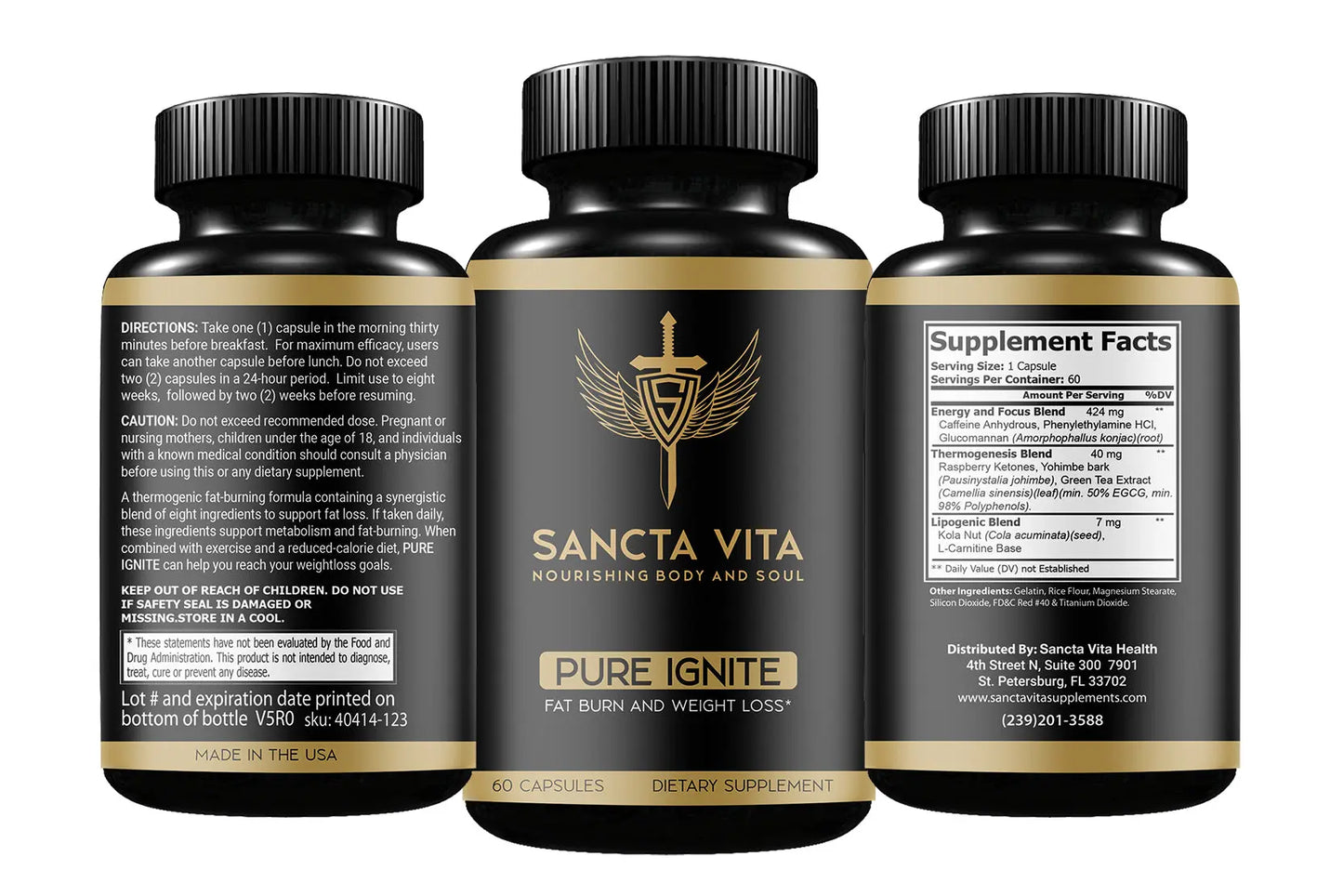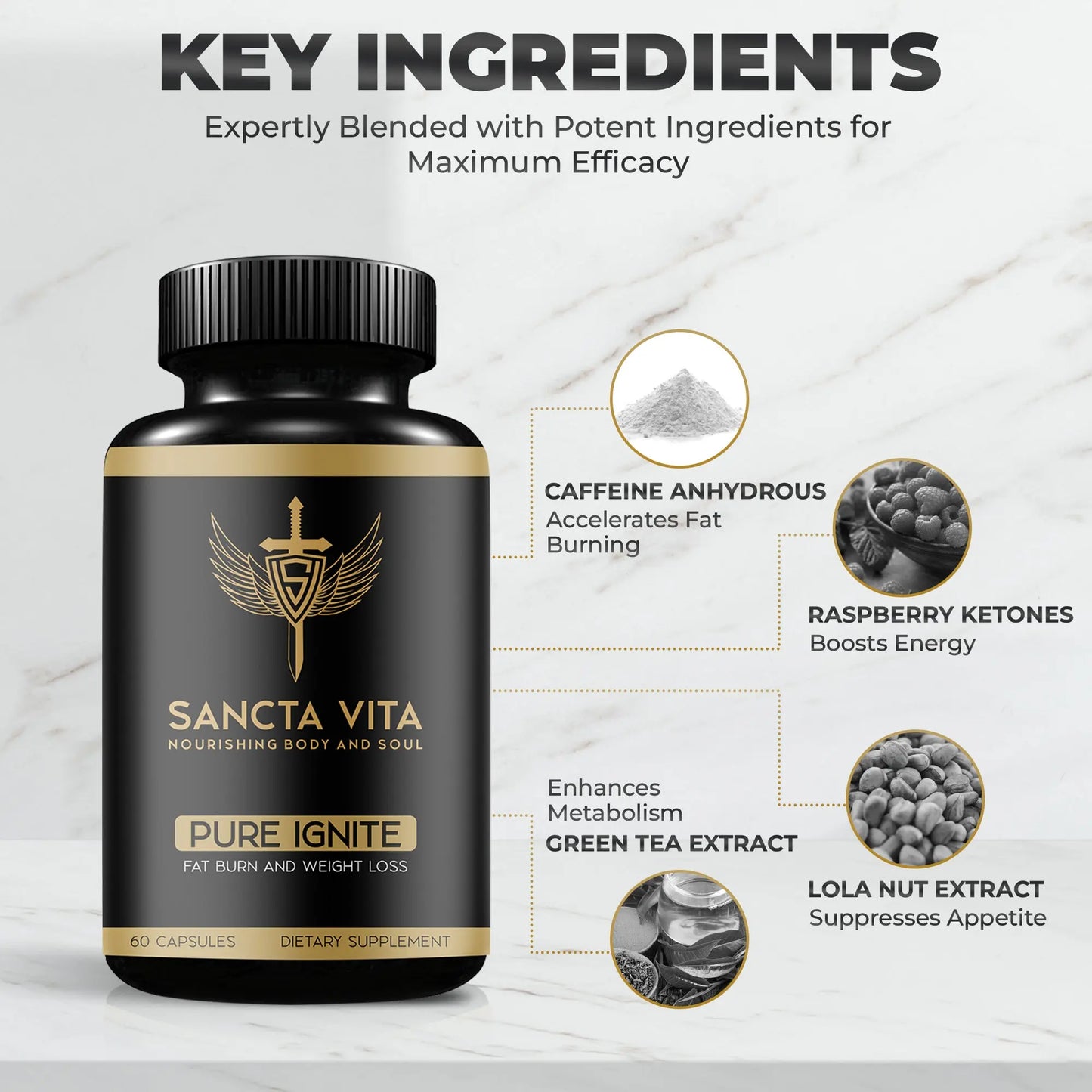
Best Diet Supplements for Weight Loss Success
Share
Diet supplements, including vitamins to take for weight loss and various weight loss supplements, play an increasingly significant role in modern weight management strategies. The global dietary supplement market is projected to reach $230.73 billion by 2027, with a growing number of individuals turning to these products to support their health and weight loss goals.
Key Takeaways:
- Market growth: The dietary supplement industry is experiencing rapid expansion
- Popularity: 77% of U.S. adults use dietary supplements
- Effectiveness: Supplements work best when combined with diet and exercise
- Safety: Consulting healthcare providers is crucial before starting any supplement regimen
- Variety: Diet supplements come in various forms, including vitamins, minerals, and specialized compounds
The Role of Diet Supplements in Weight Management
Diet supplements have gained immense popularity in recent years as people seek additional support for their weight loss journeys. These products, which include vitamins, minerals, and specialized compounds, are designed to complement nutritional intake and potentially enhance weight loss efforts. With the global dietary supplement market projected to reach $230.73 billion by 2027, growing at an 8.2% CAGR, it's clear that many individuals are turning to these products for assistance.
Interestingly, 77% of U.S. adults report taking dietary supplements, with a significant portion seeking weight management benefits. While diet supplements can offer support, it's crucial to understand their role as part of a broader holistic approach to weight loss, rather than a magical solution.
Understanding Diet Supplements and Their Effectiveness
Diet supplements come in various forms, including capsules, powders, tablets, and teas. They can be broadly categorized into vitamins, minerals, and specialized compounds. For instance, green tea extract has been shown to boost metabolic rate by 3-4%, potentially aiding in weight loss efforts.
It's important to distinguish between essential vitamins and specialized compounds. While vitamins like D and B-complex are crucial for overall health and can support weight loss indirectly, specialized compounds such as MCT oil and carnitine are more directly targeted at fat metabolism. For example, studies have shown that carnitine supplementation can improve fat metabolism by up to 10%.
Magnesium, when taken at 200-400 mg daily, has been linked to improved glucose metabolism, which can be beneficial for weight management. Meanwhile, green tea extract may help burn an additional 50-100 calories per day, and MCT oil can promote ketosis and fat burning.
Integrating Diet Supplements into a Healthy Lifestyle
While diet supplements can be helpful, they should complement, not replace, a balanced diet and regular exercise. It's crucial to consult healthcare providers before introducing any new supplements, especially for those with pre-existing health conditions or taking medications.
Interestingly, customers who use supplements in conjunction with a proper diet and exercise regimen reported 60% greater success than those relying on supplements alone. This underscores the importance of a holistic approach to weight loss.
It's also worth noting that while some supplements can be beneficial, others may pose risks. For instance, there's a risk of overdosing on fat-soluble vitamins like Vitamin A. Additionally, newer weight loss supplements for women and men, such as GLP-1 drugs like Ozempic and Rybelsus, have shown promising results, helping individuals shed up to 15% of body weight over 1 year. However, these should only be used under strict medical supervision.
Risks, Misconceptions, and Safe Practices
One common myth is that all weight loss supplements provide immediate results. In reality, sustainable weight loss takes time and effort. Another misconception is that "natural" always means safe. Natural supplements like yohimbine can produce adverse effects if used improperly.
It's crucial to be aware of potential side effects and interactions. For example, caffeine-containing supplements may interact with medications for high blood pressure. Common side effects of some supplements include nausea and headaches.
To ensure safety, always look for scientific backing before incorporating any supplement into your routine. It's alarming to note that there are approximately 23,000 ER visits annually related to dietary supplement misuse, highlighting the importance of proper usage and medical guidance.
When choosing a fat burner or weight loss supplement, prioritize products with clear ingredient labels and reputable manufacturing practices. Remember, the best approach to weight loss combines a balanced diet, regular exercise, and, if necessary, carefully selected and professionally recommended supplements.
Frequently Asked Questions
1. What are diet supplements, and how do they help with weight loss?
Diet supplements are products containing vitamins, minerals, or specialized compounds designed to support overall health or weight management. Popular weight loss supplements, such as green tea extract, MCT oil, and carnitine, can enhance fat metabolism, boost energy, or promote ketosis. However, they work best when combined with a balanced diet and regular exercise.
2. What are the best vitamins to take for weight loss?
Certain vitamins are critical for weight loss. Vitamin D supports fat loss and muscle maintenance, while B vitamins play a key role in metabolizing carbohydrates, proteins, and fats for energy. Magnesium (200-400 mg daily) has also been linked to better glucose metabolism, aiding in weight management.
3. Are natural weight loss supplements safer than synthetic ones?
Not always. While "natural" supplements, such as yohimbine or green tea extract, are popular, they can still cause side effects if used improperly. It's important to consult a healthcare provider and ensure scientific backing before using any supplement.
4. How effective are green tea extract and MCT oil for weight loss?
Studies show green tea extract can increase metabolic rate by 3-4%, burning an additional 50-100 calories daily. MCT oil supports ketosis, promoting fat burning and increased energy. Both can be effective when used alongside a proper diet and exercise plan.
5. Do weight loss supplements work on their own?
No. Research indicates combining supplements with diet and exercise leads to 60% greater weight loss success compared to using supplements alone. They are meant to complement, not replace, healthy lifestyle habits.
6. Can supplements interact with medications?
Yes. Some supplements, like those containing caffeine, can interact with medications for high blood pressure or other conditions. Always consult a healthcare provider before adding supplements to your routine.
7. Are there risks associated with taking weight loss supplements?
Yes, misuse of dietary supplements can result in side effects such as nausea, headaches, and adverse interactions with medications. Overdosing on fat-soluble vitamins like Vitamin A or relying solely on supplements for weight loss can also pose health risks.
8. What should I look for when choosing a diet supplement?
Look for products with scientific backing, clear ingredient labels, and guidance from a reputable healthcare source. Avoid supplements promising immediate results or lacking transparency.
References
1. Wexner Medical Center [Internet]. Columbus (OH): The Ohio State University; c2023 [cited 2023 Apr 15]. Available from: https://wexnermedical.osu.edu/blog/can-supplements-help-with-weight-loss
2. Healthline [Internet]. San Francisco (CA): Healthline Media; c2023 [cited 2023 Apr 15]. Available from: https://www.healthline.com/health/food-nutrition/vitamins-to-boost-metabolism
3. UNC Gillings School of Global Public Health [Internet]. Chapel Hill (NC): University of North Carolina; c2023 [cited 2023 Apr 15]. Available from: https://sph.unc.edu/sph-news/review-shows-minimal-evidence-that-dietary-supplements-lead-to-weight-loss/
4. AARP [Internet]. Washington (DC): AARP; c2024 [cited 2023 Apr 15]. Available from: https://www.aarp.org/health/healthy-living/info-2024/vitamins-supplements-weight-loss.html
Sources:








